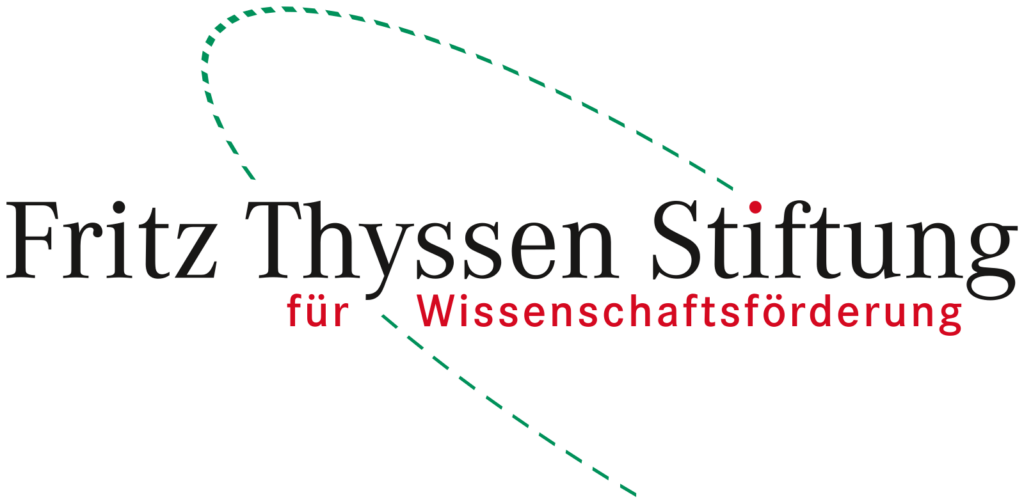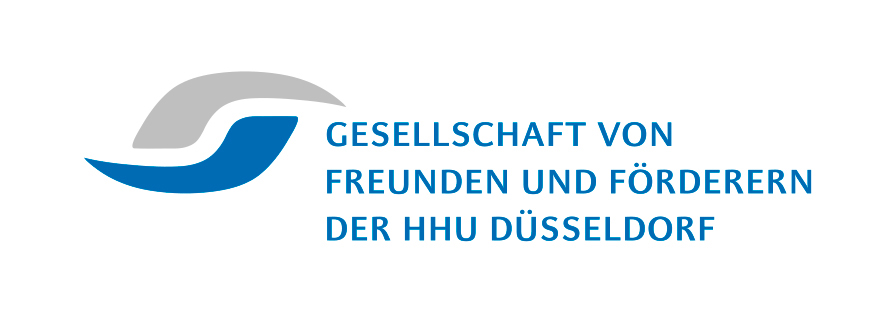About
The international workshop “Futures of the past: The diachrony of future constructions across languages” is going to take place at the Haus der Universität of HHU Düsseldorf on March 6th and 7th, 2023.
The conference is funded by the Fritz Thyssen Foundation and the “Gesellschaft von Freunden und Förderern der HHU Düsseldorf” (GFFU).
CfP
Languages differ in the ways in which they mark future time reference, and in the extent to which speakers can choose between future tense forms and the so-called futurate present when referring to future events (see e.g. Dahl & Velupillai 2013). In addition, future constructions differ in their grammaticalization paths: While some derive from modal verbs (e.g. English will/shall), others recruit change-of-state verbs (e.g. German werden ‘become’) or forms of come and go (e.g. English BE going to; -ya ‘go’, Bambara nà ‘come’, among many others, see Heine & Kuteva 2002) as future auxiliaries. The goal of this workshop is to take a contrastive perspective on the evolution of future constructions by bringing together scholars working on different languages and language families. In particular, we want to address the following questions:
– Which cross-linguistic tendencies can be observed in the grammaticalization of future constructions?
– To what extent can we compare the grammaticalization paths of future constructions with different origins?
– How do different future constructions compete in different languages, and can these patterns of competition be compared cross-linguistically?
– Which cognitive implications (see e.g. Fleischman 1982) do findings on the diachronic development of future constructions entail?
We invite papers on these and related questions from all linguistic disciplines. All authors of accepted papers will be invited to contribute to a peer-reviewed edited volume on the topic, which we plan to submit to the newly-established book series “Advances in Historical Linguistics” at Language Science Press.
Please send your abstract to Lena Schnee and Stefan Hartmann until Friday, July 15, 2022. Notifications of acceptance/rejection will be sent in early August. There are no special formatting requirements for abstracts. The language of the conference is English.
Programme
Monday, 06.03.2023
| Time | Referents | Title |
| 09.00–09.30 | Registration | |
| 09.30–10.00 | Lena Schnee & Stefan Hartmann (HHU Düsseldorf) | Welcome |
| 10.00–10.40 | Agnes Jäger (Universität Jena) | The origin of German werden + infinitive future – an alternative scenario |
| 10.40–11.00 | Coffee break | |
| 11.00–11.40 | Elena Smirnova (Université de Neuchâtel) | Future constructions in German: a case of “failed grammaticalization”? |
| 11.40–12.20 | Julia Hübner (Universität Hamburg) | Future constructions in competition. New perspectives on the development of German future constructions in the early modern period |
| 12.20–14.00 | Lunch break | |
| 14.00–14.40 | Svetlana Petrova (Universität Wuppertal) | The expression of future-in-the-past in the history of German |
| 14.40–15.20 | Sarah Ihden (Universität Hamburg) & Lena Schnee (HHU Düsseldorf) | Expressing future reference in Middle Low German – a corpus-based approach |
| 15.20–15.40 | Coffee break | |
| 15.40–16.20 | Joseph Reisdoerfer (Luxembourg) | Expressing Future Time in Luxembourgish |
| 16.20–17.00 | Olaf Mikkelsen (Adam Mickiewicz University in Poznań & Université Paris 8) & Dylan Glynn (Université Paris 8) | Motion-based vs volition-based futurity in Germanic: a quantitative corpus-driven investigation |
| 19.00 | Workshop Dinner Hirschchen |
Tuesday, 07.03.2023
| Time | Referents | Title |
| 09.00-09.40 | Nadine Dietrich (University of Edinburgh) | Semasiological and onomasiological seamlessness in semantic change: the case of be going to and the expression of plan |
| 09.40–10.20 | Elzbieta Adamczyk (Universität Wuppertal) | Future tense markers in early Germanic: Patterns of distribution and change in Old English and Old Frisian |
| 10.20–11.00 | Dominika Skrzypek (Adam Mickiewicz Universität Poznań) | The future that did not happen. On the diachrony of the verbs varda and bliva in Swedish (1300-1750) |
| 11.00–11.30 | Coffee break | |
| 11.30–12.10 | Björn Wiemer (JGU Mainz) | The entanglement of grammaticalization and hypoanalysis in the rise of futures in Slavic languages |
| 12.10–12.50 | Robin Meyer (Université de Lausanne) | Hypoanalysis and aspectual diversification: the Armenian future in diachrony |
| 12.50–14.10 | Lunch break | |
| 14.10–14.50 | Hannah Gibson (University of Essex), Lutz Marten (SOAS University of London) & Teresa Poeta (University of Essex) | The future tense in Bantu: a comparative-diachronic perspective |
| 14.50–15.30 | Seongha Rhee (Hankuk University of Foreign Studies) & Kultida Khammee (University of Phayao) | Grammaticalization of Future Markers in Korean and Thai |
| 15.30–16.00 | Closing discussion |
Contact
Lena Schnee, Stefan Hartmann
HHU Düsseldorf
Universitätsstraße 1
40225 Düsseldorf
{lena.schnee | hartmast} [at] hhu [dot] de
We are grateful to the Fritz Thyssen Foundation and the “Gesellschaft von Freunden und Fördern der HHU Düsseldorf” (GFFU) for financial support.


